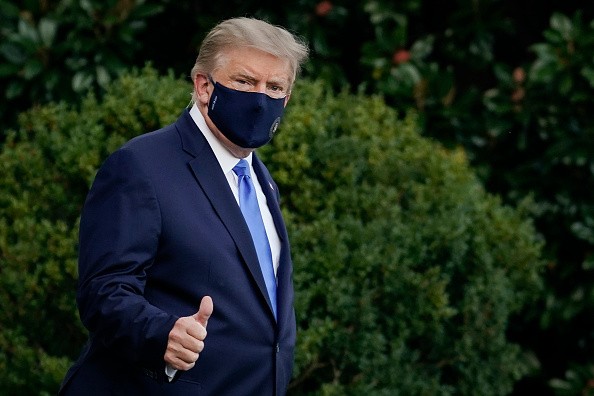Will Trump's COVID-19 Diagnosis Speeds Up Stimulus Deal? Pelosi Projects Optimism
President Donald Trump's COVID-19 diagnosis is said to change the dynamic of negotiations toward a new stimulus deal.
On Friday, House Speaker Nancy Pelosi expressed optimism of striking a bipartisan COVID-19 relief agreement with the Trump administration, saying the President's illness "kind of changes the dynamic" of stimulus talks.
"This kind of changes the dynamic because here they see the reality of what we have been saying all along - this is a vicious virus," Pelosi said on MSNBC.
Pelosi noted that she is "always optimistic" that negotiators will "find a path" toward an agremeent.
"That is our responsibility to do so. And I believe that we will," Pelosi added.

The President had downplayed the threat of the virus that killed more than 208,000 Americans in more than six months.
Trump had hoped to turn the focus of the final weeks of the campaign on the coronavirus. However, his diagnosis served only to intensify the scrutiny, as per IB Times.
Pelosi issued the comments after the House passage of the $2.2 trillion stimulus plan that provides $500 for dependents, $1,200 economic impact payments for individuals, and would bring back the $600 a week supplemental unemployment benefit that expired on July 31.
The measure would also expand the Earned Income Tax Credit to fully refundable child care on 2020 income taxes and extend the benefits of adult dependents.
The proposed COVID-19 relief package changes food assistance parameters and provides premium tax credits for Americans who lost their employer-provided health insurance. Other provisions provide homeowners assistance, rental assistance, and aid to local and state governments.
Republicans were objecting to the price tag of the House legislation. Treasury Secretary Steven Mnuchin likes the stimulus deal to be closer to $1.6 trillion, which Pelosi rejected as "inadequate." Mnuchin was reportedly set to brief the President with his talk with Pelosi on Friday.
On Wednesday, Mnuchin spent about 90 minutes in Pelosi's office. He already spent about 50 minutes on the phone with her Tuesday.
According to the Washington Post, Mnuchin told Pelosi on Friday that he had tested negative for the virus. Talks on the stimulus deal had been stalled until this week since August 7. White House economic adviser Larry Kudlow expects the two parties to reach an agreement.
During their meeting, Pelosi spokesperson Drew Hammill said Mnuchin and Pelosi discussed "areas of disagreement" and negotiations will continue.
After Trump and White House adviser Hope Hicks tested positive, Pelosi was also tested for COVID-19 "out of an abundance of caution." She had tested negative for the virus, according to Hammill.
Pelosi outlined the remaining sticking points in negotiations:
- Unemployment insurance.
- Child tax credits.
- Testing & tracing funds.
- Funding for schools, local, and state government.
- Appropriations for Democratic priorities like transit.
The Democratic-controlled House on Thursday evening voted 214 to 207 to pass the stimulus bill called Heroes Act 2.0, which is a scaled-down version of the $3.4 trillion HEROES Act that was passed in May but was never taken up by the Republican-led Senate.
Check these out:
Stimulus Check: Role of Taxes and Everything You Need to Know
Heroes Act 2.0: New Stimulus Package, Inclusions
Any Bipartisan Stimulus Deal Will Include More $1,200 Direct Payments, Mnuchin Says
Subscribe to Latin Post!
Sign up for our free newsletter for the Latest coverage!
















